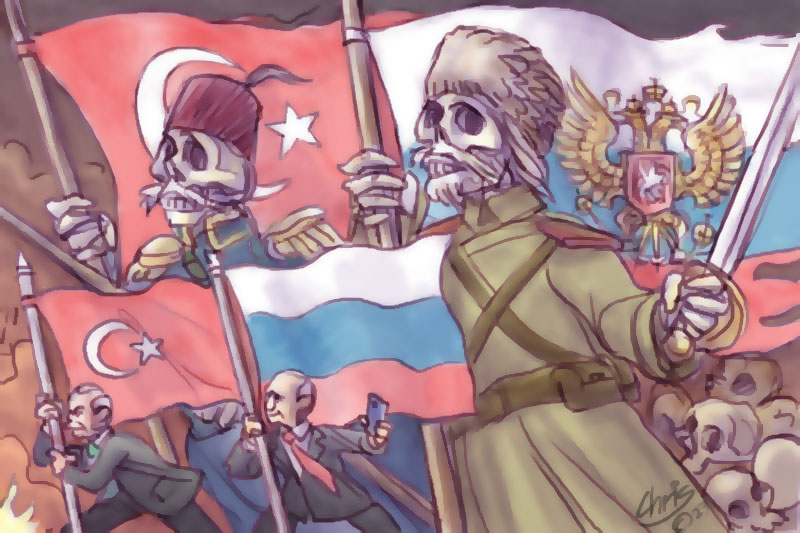Perhaps it was the viewing of the Coronation that did it, but the fact remains: I have always been interested in history, and just lately that interest has surged. Again. Another factor at play was the re-reading of Arnold Toynbee’s essay 'The Present Point in History', which had suddenly surfaced. Time and trends affect even historians, so I don’t suppose Toynbee is much read or thought of these days, but he was once very famous. The essay dates back to 1947, and is taken from his book Civilisation on Trial, an apt title, for in the post-war era civilisation was indeed being sorely tested.

The essay opens with Toynbee’s childhood memories of seeing the so-called colonial troops who had come to London to help celebrate Queen Victoria’s Diamond Jubilee in 1897. In adulthood he wrote that the English middle classes probably believed that in a sense history was over then: they thought of Waterloo in 1815, the Great Reform Bill of 1832, and the suppression of the Indian Mutiny in 1859. The middle classes of other western nations shared this view. For the Americans, the Confederacy would never rise again, and for the French Alsace-Lorraine would never be recovered. These events would remain in the past.
A popular idea, however, is that history repeats itself. Mark Twain could not agree, but thought that ‘history sure does rhyme.’ Australian historian Christopher Clark maintains, though, that we have a non-linear relationship with the past. His new book Revolutionary Spring: Fighting for a New World 1848-1849, which is about the revolutions of 1848, and has received glowing reviews, tackles this idea. We might think that some events in the past are safely packed away, but sometimes they suddenly reappear and start to speak to us. This, he says, is the case with the 19th century.
The Eastern Question, such a focus during the 19th century, seemed to recede during the 20th, but now, Clark points out, it is back. As I write, Greece is watching anxiously as the Turkish election is held, for tensions between the two countries, always present, have lately grown in intensity, while Erdogan seems to have a neo-Ottoman vision for his country. Then there is the squabbling over the future of Libya, the grim fate of Syria, and the conflict over the grain exports from the Black Sea ports.
'In Australia we’ve had the so-called "culture wars", which thankfully did not involve bloodshed, but did see history used as a weapon.'
It’s been a good month for the publication of history. Clark’s book has been followed by The Russo-Ukrainian War: The Return of History, by Harvard professor Serii Plokhy. Toynbee believed that War and Class were the twin diseases of civilization, and were thus ever-present, and who, historians and others, can argue with this assertion? Toynbee was also inevitably concerned with the concept of Empire, and so are Clark and Plokhy. Clark has stated that the Russo-Ukrainian conflict stretches back far beyond the 20th century, in that it connects ‘with a deeper history of wars and annexations along the Russian imperial periphery,’ and Plokhy argues similarly, writing that the process of Ottoman decline began in the 17th century and the Russian one in 1914. He also sees the current conflict as being one of the wars related to the disintegration of Empire. He warns, however, that the process of disintegration can take a long time, and nearly always involves a great deal of suffering. He also points out that the so-called Great Powers have lost every war they have engaged in since 1945.

Plokhy has family in Ukraine and has lost a cousin in the conflict. He says that after the first shock of the invasion had passed, most people asked themselves what they could do to help. He decided that he could best help by using his skills as an historian, for, as he said in a recent interview, history is being used as a weapon in this conflict, with Putin apparently having had a hand in writing about and pushing the contentious view that Russians and Ukrainians are one people. Such manipulations are, of course, common. In Australia we’ve had the so-called 'culture wars', which thankfully did not involve bloodshed, but did see history used as a weapon.
Historians usually write of a past when the outcomes are known, but Plotkhy’s current volume is different. He says that being a good historian means that he has to control his emotions: a hard task. But historians can also posit their own point of view, and it is interesting to note that Toynbee believed in progress being achievable only in spiritual terms. He wrote that God alone knows the true picture.
Gillian Bouras is an expatriate Australian writer who has written several books, stories and articles, many of them dealing with her experiences as an Australian woman in Greece.
Main image: Chris Johnston illustration.